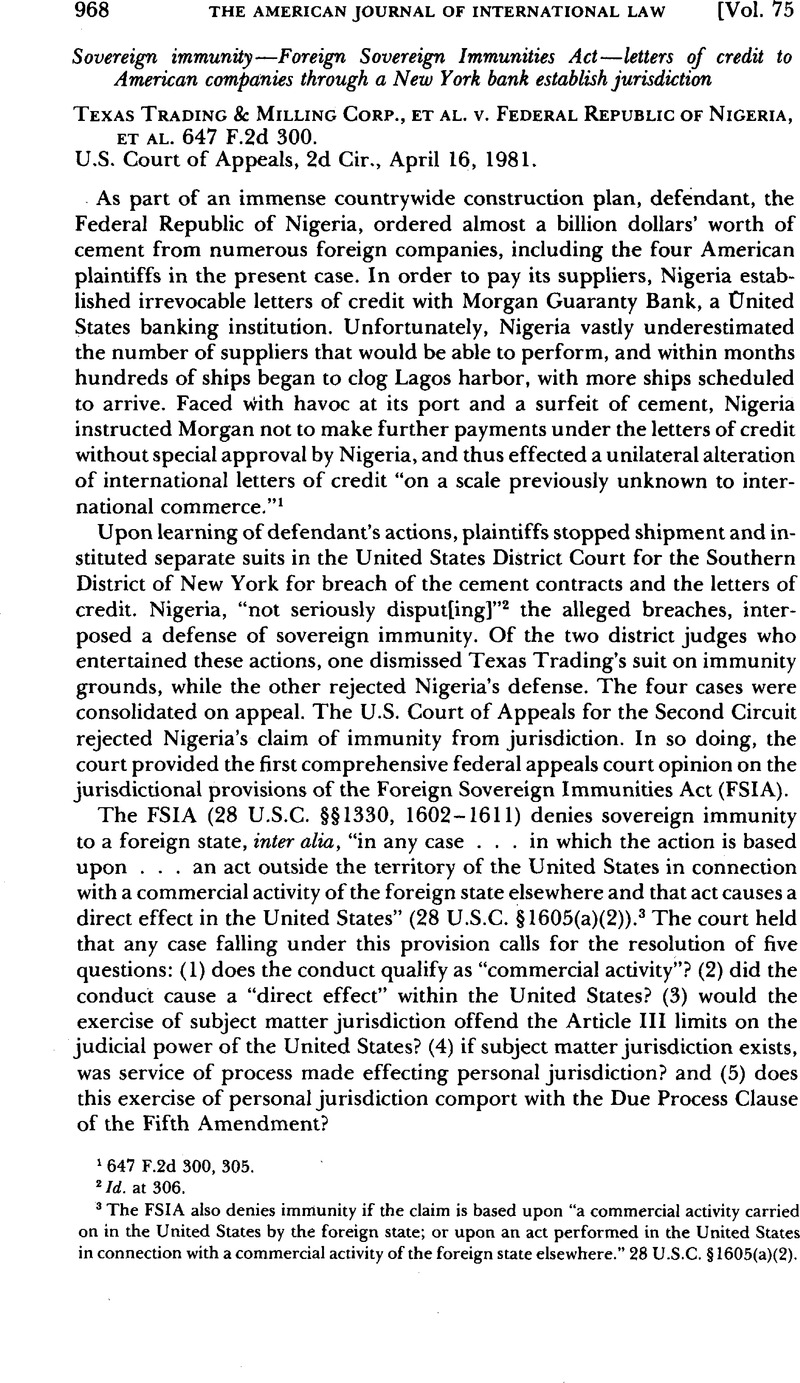No CrossRef data available.
Article contents
Texas Trading & Milling Corp., et al. v. Federal Republic of Nigeria, et al.
Published online by Cambridge University Press: 27 February 2017
Abstract

- Type
- Judicial Decisions
- Information
- Copyright
- Copyright © American Society of International Law 1981
References
1 647 F.2d 300, 305.
2 Id. at 306.
3 The FSIA also denies immunity if the claim is based upon “a commercial activity carried on in the United States by the foreign state; or upon an act performed in the United States in connection with a commercial activity of the foreign state elsewhere.” 28 U.S.C. § 1605(a)(2).
4 Accord, International Ass’n of Machinists & Aerospace Workers v. OPEC, 477 F.Supp. 553, 566 (CD. Cal. 1979).
5 The court expressly declined to decide whether either factor alone would be sufficient.
6 In a companion case, the court dismissed a suit brought under the FSIA by an alien plaintiff for want of Article III jurisdiction. Verlinden B.V. v. Central Bank of Nigeria, 647 F.2d 320 (1981), supra at p. 965.
7 Accord, Carey v. National Oil Corp., 453 F.Supp. 1097, 1101 (S.D.N.Y. 1978), aff’d, 592F.2d 673, 676 (2d Cir. 1979), 74 AJIL 939 (1980). Other courts, however, have required thenexus to be between the foreign sovereign and the state of the United States in which the caseis heard. See Thos. P. Gonzalez Corp. v. Consejo Nacional de Produccion de Costa Rica, 614 F.2d 1247 (9th Cir. 1980), 74 AJIL 939 (1980); Waukesha Engine Div. v. Banco Nacionalde Fomento Cooperative, 485 F.Supp. 490 (E.D. Wis. 1980).
8 The court summarily dismissed defendants’ invocation of the act of state doctrine, holding—in a welcome repudiation of automatic application of act of state—that the adjudication of Nigeria’s conduct did not threaten to embarrass the executive branch in its conduct of foreign relations.
9 The leniency of the “direct effect” standard adopted by the court in Texas Trading may have sprung, to some extent, from the court’s decision in a companion case, Verlinden B.V. v.Central Bank of Nigeria, 647 F.2d 320 (1981), supra at p. 965. Verlinden held that aliens may not employ the FSIA as plaintiffs, since there would be no Article III subject matter jurisdiction. By precluding foreign plaintiffs and thus restricting the plaintiff pool to Americans, presumably the intended beneficiaries of the FSIA, the court made it easier to justify a lenient direct effect test.


